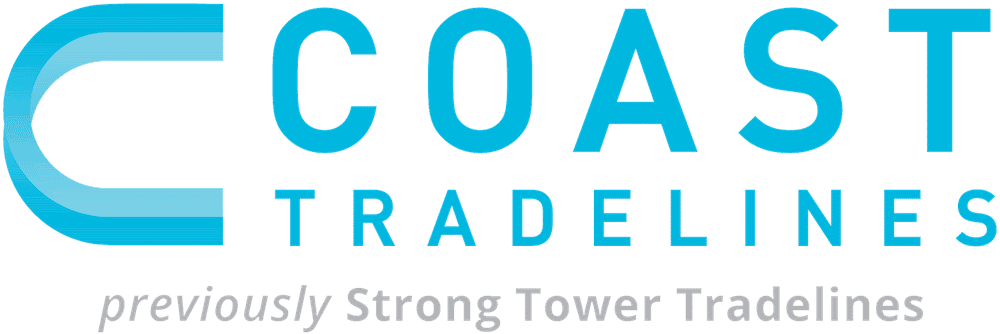Tradelines represent a foundational element in the landscape of credit improvement strategies, offering a viable method for individuals to augment their credit scores through the addition of positive credit history and the diversification of credit types. The core concept of tradelines revolves around the strategic leveraging of existing credit accounts to enhance one’s creditworthiness. This is critical in today’s financial environment where a strong credit score can be the key to unlocking lower interest rates and access to a broader range of financial products. At the heart of this strategy are primary tradelines, which denote accounts where the individual is the primary account holder. These tradelines are particularly significant because they directly showcase an individual’s credit behavior and history. For instance, a consistently paid mortgage or an auto loan that has been managed well over several years can serve as a powerful indicator of financial responsibility, thereby positively influencing one’s credit score.
Moreover, the utilization of tradelines extends beyond just personal financial management; it is a strategic approach embraced by savvy financial planners and individuals looking to optimize their credit profiles. By carefully selecting and managing tradelines, one can effectively demonstrate to lenders and financial institutions their ability to handle credit responsibly. This is particularly beneficial for those looking to recover from financial missteps or those who are in the early stages of building their credit history. The inclusion of positive payment history through primary tradelines not only reflects well on the individual’s credit report but also plays a crucial role in the calculation of credit scores, potentially opening the door to better financial opportunities and terms in the future. This strategic application of tradelines underscores their importance in the broader context of personal financial management and credit optimization.
Understanding Different Types of Tradelines
The world of tradelines is rich and varied, encompassing seasoned tradelines, which are accounts with a long history of positive credit behavior and therefore considered more valuable in credit scoring models. Authorized user tradelines, on the other hand, permit individuals to benefit from the positive credit history of another person’s account, offering a potential boost to their credit scores. The impact of these different types of tradelines on credit scores varies, with primary tradelines generally providing more significant benefits due to the direct reflection of the individual’s own credit management.
For example, consider an individual who becomes an authorized user on a seasoned credit card account that has been maintained effectively for several years. This arrangement can positively impact the individual’s credit score by incorporating the account’s longstanding history of on-time payments and high credit limit into their credit profile.
 The
The
Benefits of Tradelines
Adding tradelines to one’s credit report can yield numerous benefits, chiefly by showcasing responsible credit management and introducing diverse credit types into the credit mix. Tradelines can significantly contribute to lowering credit utilization ratios—a pivotal factor in credit scoring models—thus enhancing one’s credit score. This strategic move allows individuals to meticulously improve their credit scores by adding accounts with positive payment histories to their credit reports.
For instance, an individual who successfully lowers their overall credit utilization by being added as an authorized user on a tradeline with a high credit limit and low utilization can see a notable improvement in their credit score.
Navigating the intricate world of tradelines requires a keen understanding of their nuances to avoid common errors that can hinder your credit improvement journey. A frequent oversight is underestimating the significance of a tradeline’s age. Seasoned tradelines, or those with a long history of positive credit behavior, are far more impactful on credit scores than newer accounts. This is because credit scoring models, such as those developed by Fair Isaac Corporation (FICO), often place a premium on the length of credit history, making older accounts more beneficial. For instance, purchasing a tradeline that has been in good standing for several years can substantially elevate your credit score, as it suggests a long-term pattern of financial responsibility.
Another common mistake is failing to ensure the authenticity and positive history of tradelines. With the prevalence of fraudulent activities in the credit market, it’s essential to thoroughly vet any tradeline provider before making a purchase. This involves checking reviews, seeking referrals, and verifying the provider’s track record of success. Opting for cheap or low-quality tradelines without such due diligence can result in minimal to no improvement in credit scores, or worse, negative implications if the account turns out to have a history of late payments or high utilization. It’s crucial to remember that while tradelines can be a powerful tool for enhancing your credit profile, they must be chosen with care and understanding to genuinely reap their benefits.
Alternative Credit Improvement Strategies
Exploring alternative methods to tradelines for enhancing your credit is crucial for individuals aiming to optimize their financial strategies. A viable option in this regard is obtaining a secured credit card, which is a beneficial instrument for either starting or revitalizing your credit history. Differing from tradelines, secured credit cards necessitate a deposit that acts as security, offering a dependable method for building credit. This deposit essentially sets your credit limit, promoting prudent expenditure and repayment practices that can notably improve your credit score over time.
Furthermore, engaging in programs like Experian Boost represents a cost-free method for augmenting your credit. This program enables the inclusion of utility and telecom bill payments in your credit report, which could positively affect your credit scores. This method leverages your existing payment patterns to benefit your credit history. Additionally, taking proactive steps such as consistently reducing your credit card balances can lead to significant enhancements in your credit score. By decreasing your credit utilization ratio, an essential factor in credit scoring algorithms, you demonstrate your financial reliability, potentially opening up more favorable financial prospects. Adopting these strategies with dedication and regularity provides a practical approach to cultivating a stronger credit profile.
Navigating Tradelines for Credit Enhancement
Navigating the world of tradelines requires a nuanced understanding of their potential impact on credit scores. Tradelines can significantly improve an individual’s creditworthiness by adding positive payment history and diversifying credit types. Choosing a seasoned tradeline with a long history of on-time payments can provide a more substantial boost to your credit score than a newer account might bring.
Moreover, it’s essential to weigh the financial investment against the potential savings on loan payments. For example, purchasing a primary tradeline might cost money upfront, but the improvement in your credit score could lead to lower interest rates on loans, saving you much more over time. Therefore, individuals must approach the purchase and use of tradelines with a strategy in mind, prioritizing options that offer the best return on investment. Making informed decisions in this realm can lead to significant improvements in credit scores, opening doors to better financial opportunities.


 The
The 
